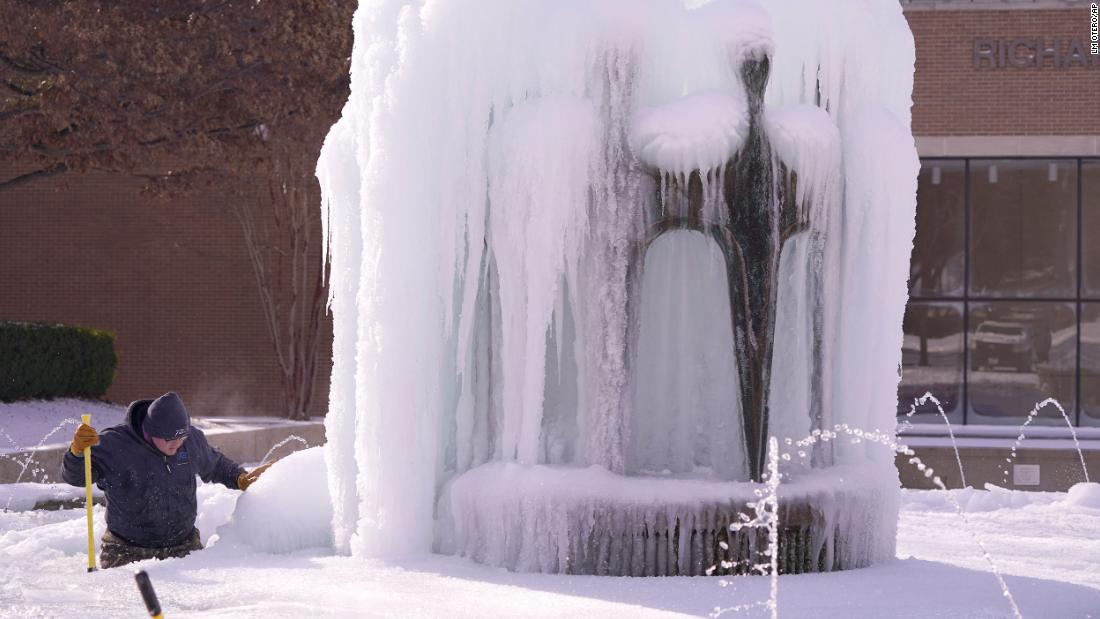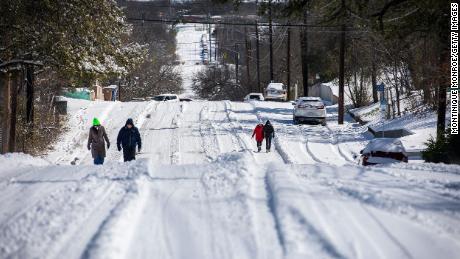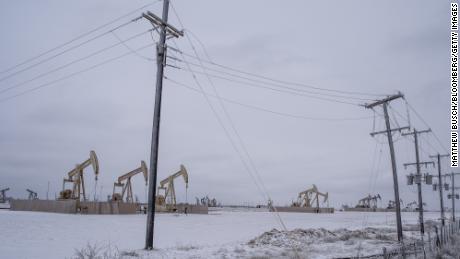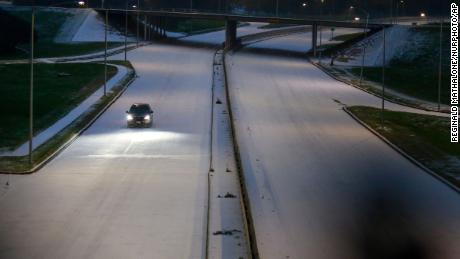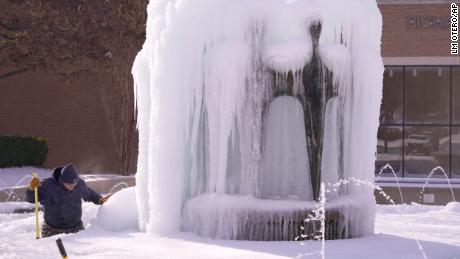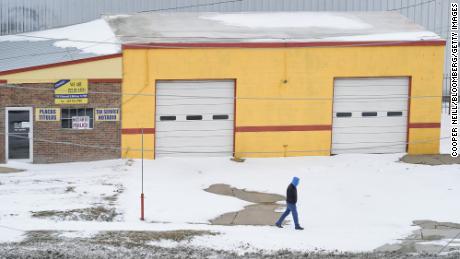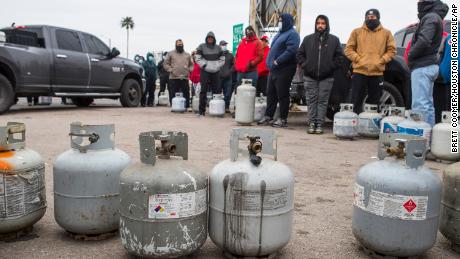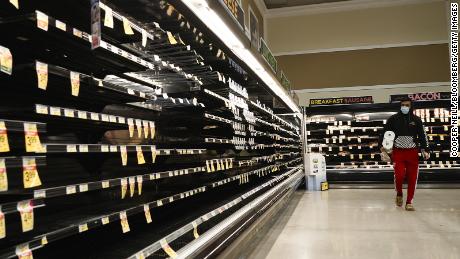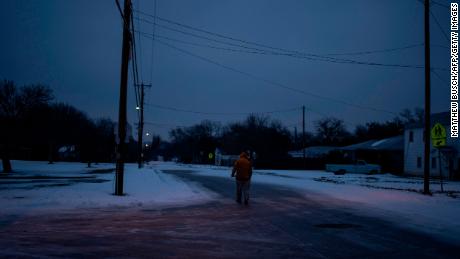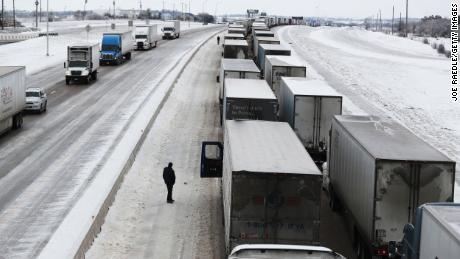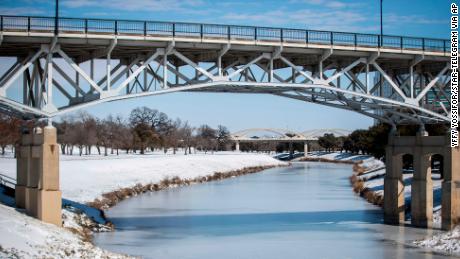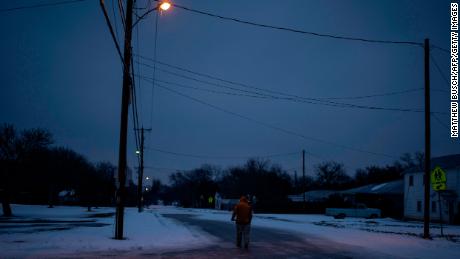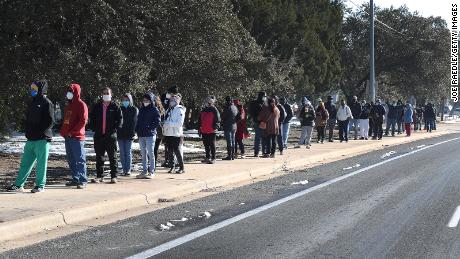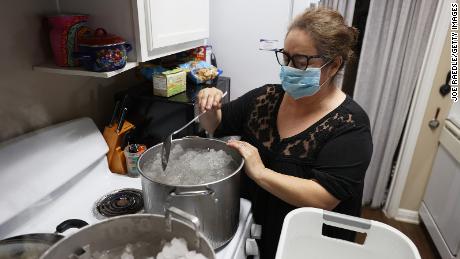How a week of frigid weather and catastrophe unfolded in Texas
But many Texans have only just begun recovering from the unprecedented devastation that the brutal winter storms unleashed over the past seven days.
At least 26 people died across the state since February 11.
Millions lost their power, forcing families to huddle over a fireplace, scavenge for firewood or spend nights in their car trying to stay warm. Others spent hours searching for food as shelves emptied and weather conditions led to food supply chain problems. The frigid temperatures caused pipes to burst, leading to water disruptions for roughly half the state’s population.
Covid-19 relief efforts, including food banks, were shuttered. Vaccine shipments were delayed and many appointments were canceled.
Here’s how the past week unfolded across the state.
Monday
Among them, Texas, which is beginning to feel the first impacts of what will be a brutal week.
Tuesday
“The Electric Reliability Council of Texas has been anything but reliable over the past 48 hours,” Texas Gov. Greg Abbott says in a statement. “Far too many Texans are without power and heat for their homes as our state faces freezing temperatures and severe winter weather.”
Among those residents is Barbara Martinez, who’s been reloading her fireplace to keep her elderly parents, two dogs and herself warm.
“We are running out of firewood,” Martinez said. “My goal today is to find more firewood.”
Meanwhile, weather conditions result in more than 550 vehicle crashes between Sunday and Tuesday in the Houston area alone, Police Chief Art Acevedo said. In addition to the two carbon monoxide deaths, Acevedo reported two more deaths, including a homeless person believed to have died from the weather and one traffic-related fatality.
And now, more areas begin to report another problem: water disruptions.
Wednesday
“I was worried that my son, being that he’s only 2, he’s tiny and I just wanted to make sure he was okay,” she told CNN. “So I made the decision to start up the car and sit in the heater for a little while.”
ERCOT CEO Bill Magness explains the issue was largely a lack of energy supply as the cold weather shuttered power facilities. ERCOT’s controlled power outages, he said, helped avert the system’s collapse.
“If we had waited, and not done outages, not reduced demand to reflect what was going on, on the overall system, we could have drifted towards a blackout,” he said. “People feel like what we’re seeing feels like a blackout, but the blackout that can occur if you don’t keep the supply and demand in balance could last months.”
The power outages, which led to burst pipes in unheated homes, are also hampering water plants.
In Abilene, McMurry University says it is allowing campus residents to use water from the campus swimming pool to flush their toilets.
In Friendswood, Sandra Erickson said her home got so cold that pipes burst and sent the ceiling collapsing in three different rooms.
Thursday
Some 13.5 million people throughout Texas have experienced water disruptions, with nearly 800 water systems reporting issues like frozen or broken pipes, according to Toby Baker, executive director for the Texas Commission on Environmental Quality. About 725 systems are under a boil-water advisory, Baker said.
Officials also announce food shortages, further complicating the dire situation for Texans.
“Grocery stores are already unable to get shipments of dairy products. Store shelves are already empty,” Texas Agriculture Commissioner Sid Miller said. “We’re looking at a food supply chain problem like we’ve never seen before, even with Covid-19.”
Fort Worth resident Philip Shelley said his pregnant wife and 11-month-old daughter struggled to stay warm and fed.
“(Ava) is down to half a can of formula,” Shelley said. “Stores are out if not extremely low on food. Most of our food in the refrigerator is spoiled. Freezer food is close to thawed but we have no way to heat it up.”
Friday
“It’s frustrating,” he told CNN. “I’m just glad that we were able to respond, that we were able to manage.”
In Austin alone, the state capital’s water supply lost 325 million gallons due to burst pipes, Austin Water Director Greg Meszaros said in a Thursday news conference.
“The fire department indicated they have responded to thousands upon thousands of burst pipes,” Meszaros said.
Now without water, they’re melting snow and storing it in their bathtub.
“It’s been constant,” she told CNN. “We’re exhausted, honestly.”
Saturday
Water disruptions and a depleting pile of supplies are still a concern in homes, businesses and hospitals.
“This was a sprawling natural disaster that hit us statewide and arrived on top of the pandemic,” Texas Hospital Association spokeswoman Carrie Williams said.
By Saturday morning, more than 15 million people had been impacted by water disruptions statewide, one official told CNN.
As parts of the state begin the slow process toward recovery, more details are unveiled about the devastation of the past week.
Marty Miles, the general manager of a hotel group in Galveston, said the demand was overwhelming as residents tried to find a warm place to stay. Miles said that for several days their only power came from an emergency generator, and they had no water for a little more than two days.
“The hardest part is that you don’t know when it’s going to stop,” Miles said. “Because of the rolling blackouts and not knowing when the water would be back, it was a complete stop and go, stop and go. … So every time we thought we were in the clear, two hours later, it started over.”
While thousands remain in the dark, officials have also now began investigating outrageous hikes in some customers’ energy bills as a result of the storm.
“It is unacceptable for Texans who suffered through days in the freezing cold without electricity or heat to now be hit with skyrocketing energy costs,” the governor said in a statement, adding he was working with other state leaders to find solutions and “ensure that Texans are not on the hook for unreasonable spikes in their energy bills.”
CNN’s Brandon Miller, Mallika Kallingal, Chuck Johnston, Travis Caldwell, Adrienne Vogt, Haley Brink, Eric Levenson, Madeline Holcombe, Keith Allen, Konstantin Toropin and Artemis Moshtaghian contributed to this report.
![]()


